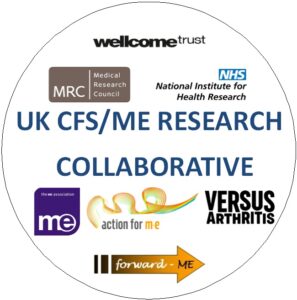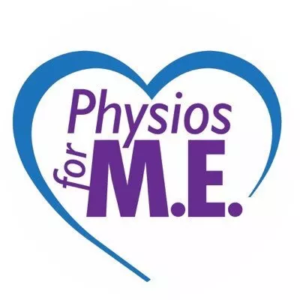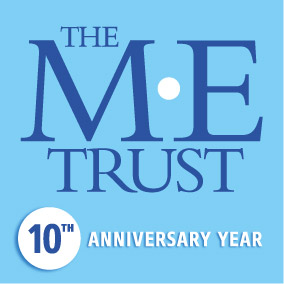Who are we?
Our Priority Setting Partnership is run by a steering group that supports and represents many different organisations involved in ME/CFS advocacy, care and research.
How was our steering group formed?
The ME/CFS PSP Steering Group was formed following a lengthy recruitment process coordinated by an initial ‘Seed Group’. Membership of this group consisted of:
- A representative from the Science for ME Forum
- A representative from Forward-ME
- A representative from the CMRC Patient Advisory Group
- PSP Lead – Sonya Chowdhury
The final Steering Group held their first meeting on Friday 9 October 2020.
Steering Group Members
- four organisation representatives
- four patient representatives
- four carer representatives
- four healthcare professional respresentatives
We also have four people from the James Lind Alliance working with us and a coordinator.
Organisation Representatives
Sonya has been CEO of Action for M.E. for eight years and is the PSP Lead which involves overseeing the contract and funding alongside working with the Steering Group. A year after Sonya joined the charity, her youngest son was diagnosed after he failed to recover from a chest infection so she also brings seven years’ of direct experience of M.E. as a parent. Sonya chairs the Management and PPI Steering Groups for DecodeME, the world’s largest M.E./CFS DNA study, which launched in June 2020 and is very involved in the UK CFS/ME Research Collaborative (CMRC) which she helped to set-up.
Prior to joining Action for M.E., Sonya, worked in senior management roles for leading children’s charity Barnardo’s where she was Head of Business Support for two days a week and National Lead for the Family Strategic Partnership for the remaining three. Previous experience includes working as a local authority social worker in fostering and adoption and child protection teams, management and trustee roles with children and families voluntary sector organisations and consultancy and training with charities and the public sector.
Our daughter developed ME 10 years ago following a bout of viral labyrinthitis, age 16. Despite being considered to be only “moderately” affected, this has completely disrupted her life. She is unable to study or work. My original degree was in Biomedical Science and I worked in MS research for a short period. It is unbelievable that so little money has been spent on Biomedical research into ME, especially in the UK. This is despite findings of significant physiological abnormalities in a range of systems in the body. This must change!
Representatives from the Patient Advisory Group (PAG) will attend the PSP on a rotating basis. The PAG aims to support patient-centred biomedical research into ME/CFS and ancillary processes, by providing a direct patient voice, a voice that is as diverse and inclusive as possible, to advise the CMRC and associated bodies and platforms (e.g. as a NICE stakeholder in the current ME/CFS guidelines review). The PAG is a flexible organisation and will evolve to support the needs of the research community.
Professional background was investment banking and marketing. Worked for Lloyds Bank for 13 years before M.E. which I developed after a nasty prolonged viral infection. I was living and working in Jersey at the time. Have had the illness for 22 years and am now 51 years old. Attended university as disabled student and studied Ancient History. I now live independently but with support in place and consider myself moderately affected – though this becomes severe during relapse etc. I have worked full- and -part-time with varying degrees of success over the years and have been involved in local advocacy in Cornwall for neurological diseases including M.E. I have enjoyed a long relationship with the M.E. advocacy movement and the ME Association. I am now employed by them as the Content Manager and work 25 hours a week from home. I am the Forward-ME representative on the PSP Steering Group and believe this promising endeavour will help drive vital funding into M.E. research.
Patient Representatives
I have had ME since 2013, and was severely affected for about 5 years. Before that I was at university studying Biology, but couldn’t continue once ME struck. During my worst stretch I didn’t step outside into fresh air for 21 months – not for medical appointments or even onto the doorstep. For 6 months I couldn’t even look out the window. Yet I consider myself lucky – I have improved over the past few years, allowing me to start volunteering with #MEAction, Sheffield ME & Fibromyalgia Group and other organisations. Through my volunteering I have been able to lead on a variety of projects from writing the survey and report “Your Experience of ME Services” to directing the short film for #MillionsMissing 2020 “I got a virus”. I have a lifelong history of being involved in campaigning, and for me the world of ME is no different. What will I bring to the steering group? My personal experience of severe ME, my connections to organisations and other individuals with ME, a love of spreadsheets and data, and a drive to fight for high quality research that will create the meaningful change people with ME desperately need.
My name is Ben, I developed ME, following an episode of Viral Pericarditis in 2017. Due to the impact of the condition, I have had to give up work as a Consultant Paediatrician with specialisation in Neurodisability and Clinical Director of Community Paediatrics at a large city hospital trust. I also have a degree in Psychology. During my practice I was trained in and engaged in a range of clinical, scientific and qualitative research and always aimed for best evidence, best practice. I hope to bring experience as a doctor and as a patient with now Moderate ME, who has engaged with current recommended therapies, to the Steering Group.
My ME started in the 1980’s, I was a student living in New Zealand and during the summer break I went on a trip around the South Island. Unknown to me there had been an outbreak of what was called “Tapanui Flu” in one area I visited, and I developed a sudden, severe viral illness. One of the first things I noticed during my better periods was that I could no longer perform even simple household activities without the symptoms intensifying. Strange things were happening to different parts of my body and rest was the only thing that seemed to help. The symptoms have recurred since then but vary in intensity. There are good and bad years and good and bad decades. During one of my “good” years I was able to travel to the UK (where I have extended family) and this has been my chosen home. I was diagnosed with ME first in New Zealand and then again in England. Being a member of a ME group has always been important to me. The internet means that I can participate from my bed at times and keep up with research news when my health allows.
I am a person with ME. When aged 34, in 1988, I suffered viral meningitis which caused severe ME. My experiences of two episodes of severe ME suffered over several years still haunt me. I was lucky as I improved, though via a roller-coaster of exacerbations and improvements. I was a trained doctor, working as a G.P., though was finally retired on ill-health grounds in 2000. I have practical experience of clinical trial research. During a brief period of better health I worked in a haemophilia unit where I was involved in all stages of clinical trials. In 2010 I started a treatment which I believe enabled me to return to near-normal. Since then, I have tried, so far unsuccessfully, to find ways of the treatment being subjected to clinical trials. Through this process I understand more about the difficulties surrounding clinical trials in people with ME. I completed a Masters of Research (MRes) in 2017, and have published a large systematic review and meta-analysis, and a series of case-reports. I passed a Good Clinical Practice training course (learning about clinical trial regulation and conduct) in 2016. I set up and attended a meeting with the Innovation Office of the Medicines and Healthcare Regulatory Authority. I am declaring a conflict of interest with my use of and interest in LDN. However, much of my knowledge surrounding clinical trials is applicable to other potential treatments for ME.
Carer Representatives
My wife has ME, originally severe but considerably improved. I’ve cared for the full range of effects of the illness, from mild post-exertion malaise up to inability to walk, talk, process information; hypersensitivity to light, vibration, odours etc. I’m very aware of the effects on patients of orthodox medical scepticism and suspicion regarding the illness. I’m a retired Health Services Researcher with experience in systematic reviews of treatments and procedures. In 2009 I proposed a Lind PSP to look specifically at the lack of independent information about possible harms following the treatments recommended by NICE: graded exercise and cognitive behaviour therapy. Although the proposal was rejected then, the Lind remit has widened since to include more than “treatment uncertainties”. I’ve studied the history of ME and its treatment in this country since the Royal Free outbreak in 1955, and I’ve followed current developments closely for the last 10 years.
I am the mother and carer of my 22-year old daughter who has very severe ME. She became ill following a bout of Glandular Fever aged 15 and has been 100% bedbound and dependent on a feeding tube for several years now. I have years of experience of how the NHS treats people with ME – GP services, outpatients’ clinics, inpatient services, Clinical Commissioning Group – as well as Adult Social Care. I am a supporting member of all the major UK ME / CFS charities and groups as I believe they all have an important and complementary role to play in supporting people with ME and their carers, in raising awareness of this devastating illness, and in campaigning for appropriate medical research. To contribute to these goals, I have written / been interviewed for pieces in various online, print and broadcast media sharing my daughter’s experience. In my professional life I am the Education Director of an England-wide cultural organisation and have experience as a Trustee for other arts organisations. I also have considerable professional experience of working with D/deaf and disabled people. I see this PSP as a key step forwards into a more positive future for everyone affected by ME. I believe that advances in medical research provide the only chance of appropriate treatment, and of one day living a fulfilling life, for my daughter and the thousands of other severely affected sufferers. I am honoured to play my part by serving on the Steering Group.
Healthcare Professional Representatives
I am a physiotherapist and Professor of Rehabilitation at the University of Manchester. I also live with ME/CFS and care for my son who also has it. My research and clinical interest is in the rehabilitation of people with chronic disabling conditions, using co-production with service users and mixed methodological approaches.
I was diagnosed with ME/CFS in 2004, aged 30, after varying degrees of ill health since my teens. My background includes working as a Chemical Engineer managing high risk industrial processes until I become too ill to continue. Over time, I received new diagnoses of infectious and immunological disorders allowing ongoing medical treatment enabling me to retrain as a Counselling Psychologist. My research focuses on the neuropsychological difficulties people with ME and Gulf War Illness (GWI) have along with the issue’s patients face when accessing counselling/psychotherapy. My clinical areas of expertise include the management of and adjustment to chronic illness, disease, and injury. This includes neurological disorders, traumatic brain injury and so forth. I work within an NHS chronic pain management service. I have a private practice where I work with many patients with ME. I can assess the neuropsychological deficits people with ME have along with working with more general mental health including with those who have experienced severe trauma, developed eating disorders, bereavement, developmental and attachment difficulties and so forth. I complete many assessments and reports for medico-legal purposes. I take a critical approach towards the evidence base for ME, chronic pain along with the so-called medically unexplained symptoms (MUS). The overreach and stretching of speculative research models and subjective outcome measures has been unhelpful. Moreover, the absence of the use of objective outcome measures in unblinded clinical trials has greatly hindered progress. I have shared my views extensively within the NHS, IAPT, with my psychologist colleagues, ME charities and patient groups.
Chartered Physiotherapist specialising in neurological and long-term health conditions, qualified for 31 years. Service Lead for the Stockport CFS/ME Service. Employed by the NHS and self-employed. I have been involved with teaching physiotherapists in Myofascial Techniques. I do NOT promote graded exercise therapy, but will advise patients on physical activity or exercise I deem appropriate for them following individual assessment. If relevant, I identify physical and neurological dysfunction which may be contributing to CFS/ME symptoms. I use a biopsychosocial model of treatment intervention, and have an interest in autonomic dysfunction, neurodiversity’s, hypermobility, and functional neurological disorders and their possible contribution to the causation of CFS/ME.
James Lind Alliance Advisors and Specialists
Toto is a freelance consultant, facilitating consensus processes, evaluation and patient and public engagement. Toto currently supports several JLA Priority Setting Partnerships and other health and care consensus or evaluation projects, in the UK and internationally. Previously Toto had a 30-year career with the National Health Service in the UK: running clinical trials; clinical work as Medical Physicist; research into non-invasive diagnostics; Patient and Public Engagement; national projects in health informatics and health economics. Toto is a Deputy Editor for the British Medical Journal Health and Care Informatics, and a member of the Royal College of GPs Scientific Foundation Board.
I am the Executive lead of the James Lind Alliance (JLA) based at the Wessex Institute, University of Southampton. The JLA brings patients, carers and clinicians together in Priority Setting Partnerships (PSPs) to identify and prioritise the Top 10 uncertainties, or unanswered questions for research. We provide advice and guidance to groups wanting to initiate a PSP, and working with our JLA Advisers, we oversee the PSP method as set out in the JLA Guidebook, as well as undertaking a range of engagement activities with the research community
I am part of the team that coordinates the James Lind Alliance (JLA) at the Wessex Institute, based at the University of Southampton. I support people in starting new JLA Priority Setting Partnerships (PSPs) and work closely with the rest of the JLA team to keep on improving what we do.
Kristina has worked on several PSPs in this role and also carried out one of the first evaluations of PSP impacts. She is Director of TwoCan Associates, a consultancy specialising in patient and public involvement in health and social care R&D.
Coordinator
We are funded and/or supported by:












